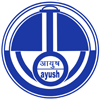The Central Council for Research in Ayurvedic Sciences (CCRAS), an Autonomous body under Ministry of AYUSH, Govt. of India is an apex body in India for undertaking, coordinating, formulating, developing and promoting research on scientific lines in Ayurvedic Sciences. The Minister of AYUSH, Govt. of India is the President of the Governing Body of the Council, while the Joint Secretary chairs the Standing Finance Committee. The Scientific/Research Programmes are supervised by the Scientific Advisory Board and Scientific Advisory Group.
The Council has been executing its research programmes with a network of 30 peripheral Institutes/centres/units with the headquarters office responsible for control, monitoring and supervision. Research work of the Council is executed by 792 officers and staff, though the sanctioned strength of officers and staff is 1983 and also through collaborative studies with various Universities, Hospitals and Institutes.
The broad areas of Research comprise:
- Clinical Research
- Fundamental Research
- Pharmacology Research (Pre clinical Safety/Toxicity and Biological Activity Studies)
- Medicinal Plant Research (Medico-Ethno Botanical survey, Cultivation, Pharmacognosy) Drug standardization Research
- Literary Research & Documentation
The outreach activities include Tribal Health Care Research Programme, Swasthya Rakshan Programme, Ayurveda Mobile Health Care Programme under Scheduled Castes Sub Plan (SCSP), Integration of AYUSH (Ayurveda) with National Programme for Prevention and Control of Cancer, Diabetes, Cardio-vascular disease and Stroke (NPCDCS), Information, Education and Communication (IEC) etc.
- Clinical Research:Validation and development of formulations for disease/clinical conditions viz. Fistula-in-Ano, Epilepsy, Filariasis, Cardiovascular disease, Hemiplegia, Malaria, Obesity & Lipid disorder, Paraplegia, Peptic Ulcer, Sciatica, Urolithiasis, Mental Retardation, Bronchial Asthma, Chronic Bronchitis, Cognitive Deficit, Dry Eye Syndrome, Allergic Conjunctivitis, Dyslipidemia, Essential Hypertension, Irritable Bowel Syndrome (IBS), Iron Deficiency Anaemia, Menopausal Syndrome, Osteoarthritis, Obesity, Osteopenia / Osteoporosis, Rheumatoid Arthritis, Rasayana(Geriatric Health), Dysmenorrhea, Type II Diabetes Mellitus, Psoriasis, Generalized Anxiety Disorder, Haemorrhoids, Polycystic Ovarian Syndrome, Uterine fibroids, Computer vision syndrome, Gout etc. 17 Ayurvedic formulations for Reproductive and Child Health Care (RCH) program have also been developed. Further, the Council has been conducting clinical research in collaboration with reputed institutes in certain disease conditions/areas viz. improving quality of life in cancer patients, Mental Retardation, geriatric health.
- Fundamental Research:Steps have been taken to develop a Standardized Questionnaire for Assessment of Prakriti and its relevance with the parameters of health and disease.
- Pharmacology Research:Pharmacological studies of about 400 Ayurvedic drugs/ formulations & safety/toxicity study of more than 50 Ayurvedic drugs/ formulations have been conducted.
- Medicinal Plant Research (Medico-Ethno Botanical Survey, Cultivation, Pharmacognosy), Drug standardization Research:Under Medico-Ethno Botanical Survey, parts of major Forest divisions have been surveyed. Council is preserving more than 1,20,000 plant species in the form of herbarium and approx. 5,000 crude drug samples were collected for museums. Around 2,500 folk claims were collected and 14 books were published out of Medico Ethno Botanical Survey. The Pharmacognostical studies on 400 single drugs, Phytochemical studies of 220 drugs, Physico-chemical constants of 889 single drugs (samples) and 623 formulations (samples) have been carried out.
- Literature Research:Revival and retrieval of texts from ancient manuscripts/ rare books, collection and compilation of references relating to drugs and diseases from classical treatises, lexicographic work, contemporary literature and publications related to Ayurveda and other medical systems have been continued further under the Literary Research Programme. The Council has been publishing periodicals "Journal of Research in Ayurvedic Sciences", "Journal of Drug Research in Ayurveda Sciences" and "Journal of Indian Medical Heritage". So far about 235 books, monographs, technical reports etc. have been published besides IEC material like brochures, booklets etc. for dissemination of Ayurveda among masses.
- AYUSH Research Portal:The Ministry of AYUSH, Govt. of India intends to disseminate the merits of AYUSH systems across the globe. A web based AYUSH Research Portal has been initiated to showcase the related information of these systems viz. evidence based Research data, CCRAS headquarter and the National Institute of Indian Medical Heritage (NIIMH) Hyderabad are coordinating and maintaining the web portal in collaboration with National Informatics Centre, Hyderabad.
- Health care Outreach Activities:
- Tribal Health Care Research Programme:This programme has been implemented under Tribal Sub Plan (TSP) and services have been extended to 16 states through 16 CCRAS Institutes to provide health care facilities at door step of tribal people. Under Tribal Health Care Research a total population 8,42,959 of 1003 villages have been covered.
- Swasthya Rakshan Programme:This programme has been initiated in 19 states through 21 CCRAS Institutes. Through this programme health care facilities and awareness will be provided to 5 colonies/villages in selected states.
- Ayurveda Mobile Health Care Programme under Scheduled Castes Sub Plan (SCSP):This Programme has been initiated in 18 states through 20 CCRAS Institutes. Through this programme, door to door health care facilities will be provided to the areas with SC pockets.
- NPCDCS Programme:Integration of AYUSH (Ayurveda) with National Programme for prevention and Control of Cancer, Diabetes, Cardio-vascular disease and Stroke (NPCDCS), has been taken by CCRAS (Ministry of AYUSH) and DGHS (Ministry of Health and Family Welfare), Gol for prevention and control of non communicable diseases in 3 identified districts of 3 states viz. Bhilwara (Rajasthan), Surendranagar (Gujarat) and Gaya (Bihar).
- Tribal Health Care Research Programme:






